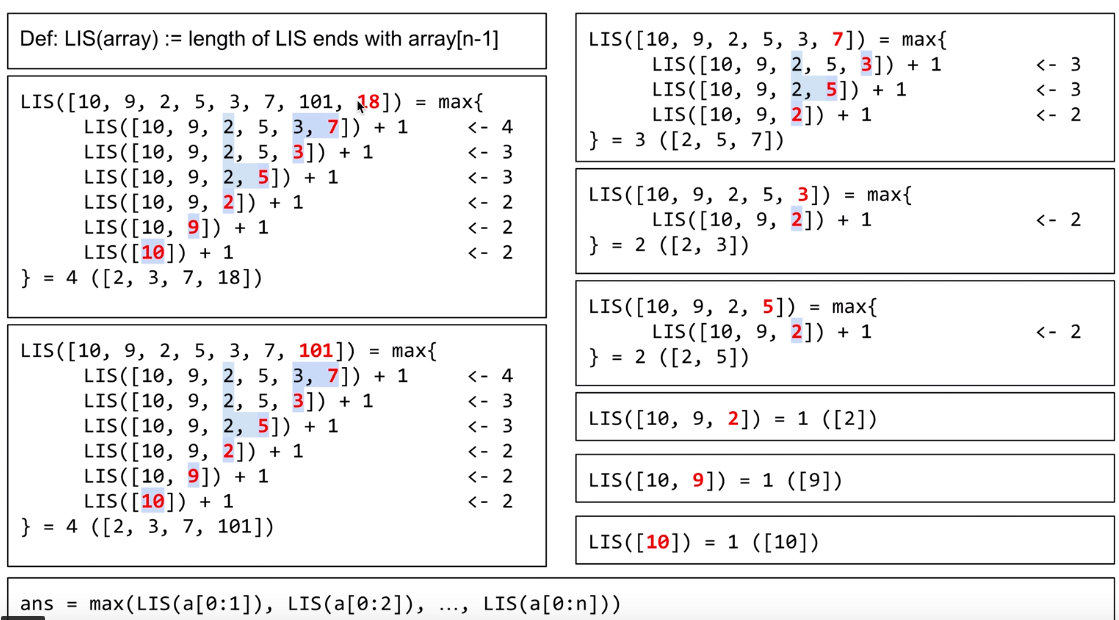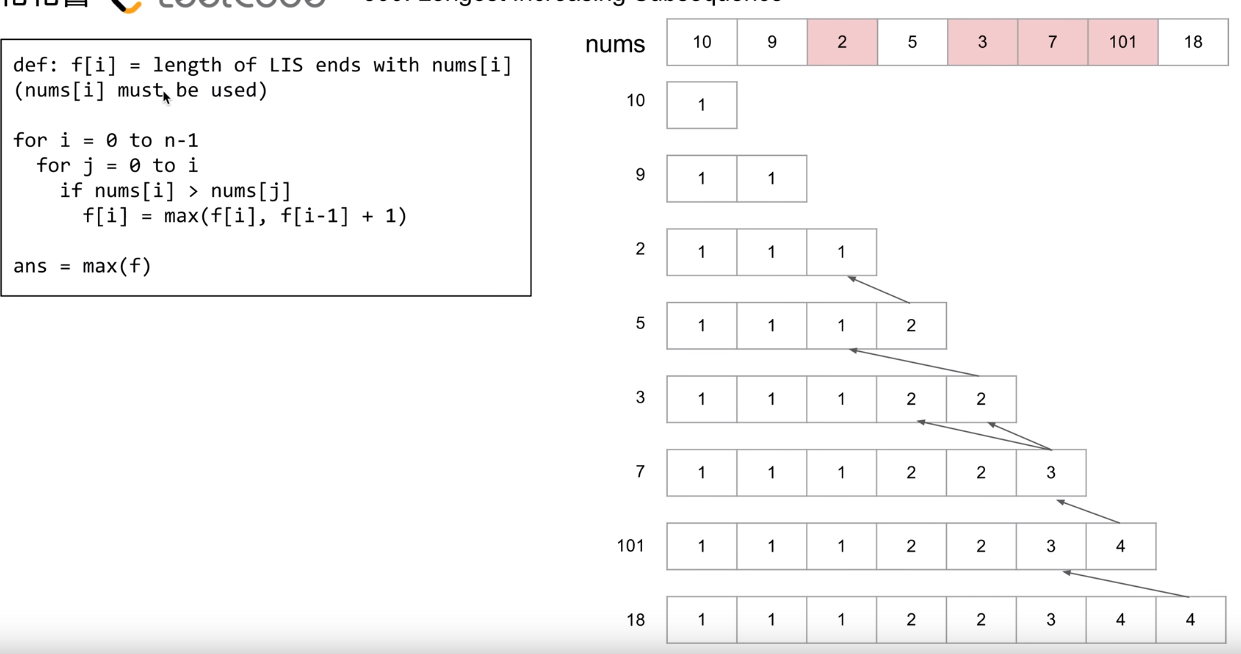Longest Increasing Subsequence
1 | Given an unsorted array of integers, find the length of longest increasing subsequence. |
递归图解LIS

递推图解

解法一
1 | public class LongestIncreasingSubsequence { |
解法二:
1 | /** |
1 | Given an unsorted array of integers, find the length of longest increasing subsequence. |


1 | public class LongestIncreasingSubsequence { |
1 | /** |